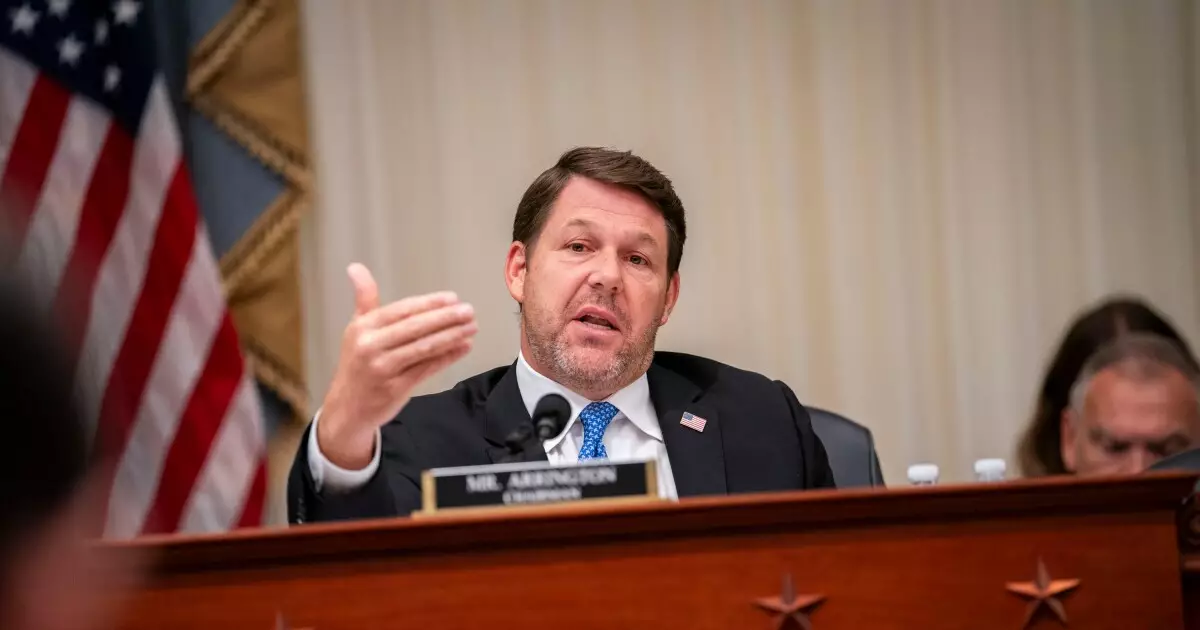As the House of Representatives prepares to engage with a fiscal 2025 budget resolution, anticipated to come to a head soon, tensions are mounting among Republican lawmakers. Centered around a budget passed by the Senate, the unfolding situation could mark another chapter in the ongoing struggle between fiscal conservatism and political expediency. House conservative members are voicing their disapproval, calling the Senate’s version of the budget a “watered-down” variant that risks undermining core Republican principles. This clash isn’t just a routine debate; it represents a significant ideological crossroads for the Republican Party, where true conservatism meets pragmatic governance.
The fiscal landscape at this moment is a reflection of the turbulent financial atmosphere in which we live. Congress is in a precarious position, with a nervous market eyeing any whiff of instability. The Senate’s approach, which suggests mere billions in cuts, stands in stark contrast to the House’s more ambitious plan. This discrepancy highlights a critical misunderstanding of fiscal discipline within the party. If the Republican majority cannot align, what hope is there for effective governance? The confidence in a once-monolithic party is fraying, and the demands for serious reconsiderations are growing louder.
The Role of Reconciliation and Its Implications
Reconciliation is often described as a legislative tool that offers the ruling party an avenue to pass significant legislation without the threat of filibusters. However, the current interpretation of reconciliation under this administration unnecessarily complicates an already convoluted legislative landscape. The reconciliation method empowers leaders to push through budgetary changes with a simple majority—an alluring prospect, but it can lead to hasty decisions that lack thorough debate and scrutiny. In doing so, Congress risks perpetuating a cycle of short-term gains while ignoring long-term consequences, particularly for American taxpayers, who may face increased burdens down the road.
This tactic also raises broader concerns: Does using reconciliation signal a failure of dialogue within the legislature? By avoiding collaboration, lawmakers may inadvertently foster resentment among their ranks. True, the excuse of “time is of the essence” has been wielded like a sword in Congress before, but it’s important to question whether expediency should outbalance stability and fairness in legislating policy. The risk of losing fiscal conservative support indicates that the party may be sacrificing trusted values for the sake of advancing an agenda that isn’t universally embraced.
Tax Cuts vs. Debt Ceiling: The Real Stakes
The forthcoming budget resolution proposes to not only push for renewed tax cuts but also address the looming debt ceiling crisis. Critics have noted that the Senate’s decision to increase the debt ceiling by up to $5 trillion raises alarm bells over the potential for runaway debt. What does this mean for future generations? Many constituents across the political spectrum are understandably concerned about a future where government indebtedness cripples economic growth.
As the GOP dances the delicate waltz of tax cuts and spending limits, it must prioritize the fiscal sense above political posturing. The juxtaposition of tax cuts against the increasing debt exposes a glaring hypocrisy—the very policies pitched as beneficial for the average American risk hollowing out their long-term economic prospects. Increasing deficits while promising tax relief is a thinly veiled attempt to placate constituents without undertaking the difficult but necessary work of meaningful reform.
The Municipal Market Under Threat
For those who invest in the municipal market, this situation carries particular trepidations. Potential threats to the municipal bond tax exemption signal deeper ramifications for state and local governments relying on these essential financial instruments. Pragmatic fiscal decisions stemming from this budget could lead to significant constriction of resources for state-level initiatives. It’s naïve to think that such drastic measures wouldn’t have cascading effects on municipal budgets, ultimately impacting everyday Americans.
How can leaders champion tax cuts while precariously threatening local capacities? The movement toward restricting necessary municipal bonds not only jeopardizes local projects but also undermines the very fabric of governance that reinvests in community resilience. Fiscal conservatism must embrace a vision that supports grassroots efforts, not dismantles them under misguided pretenses of savings.
In short, the forthcoming 2025 tax bill encompasses much more than just a simple budget resolution. It unveils a complex interplay of political motives, ideological battles, and economic ramifications that demand our attention. The journey to a balanced budget, coupled with practical fiscal responsibility, requires more than just aligning party interests; it calls for a commitment to honest discourse and genuine compromise.

